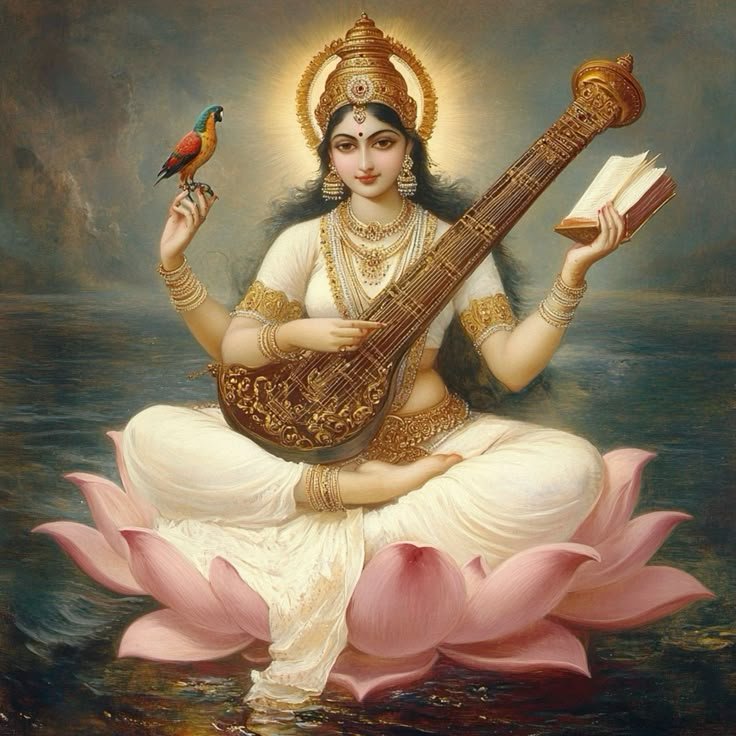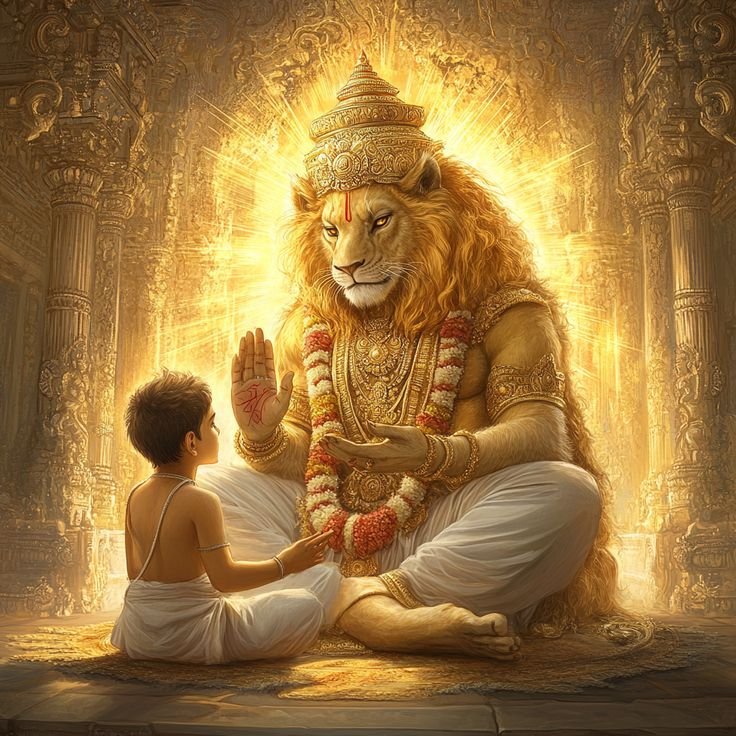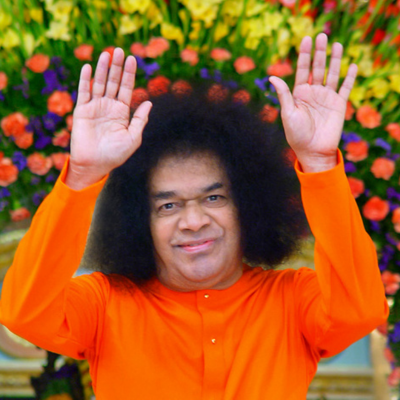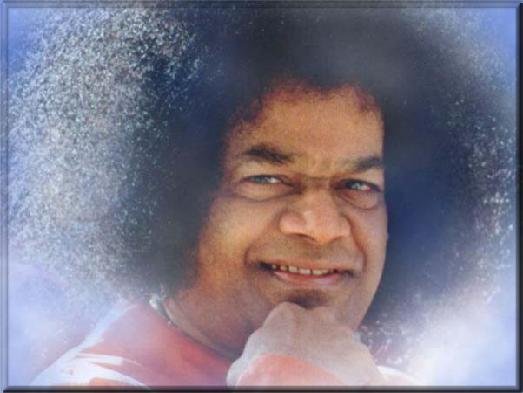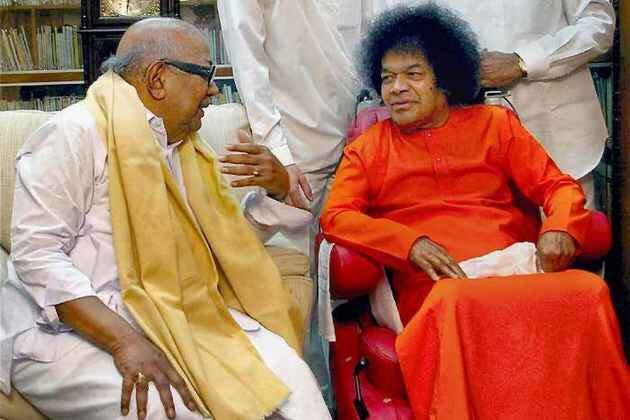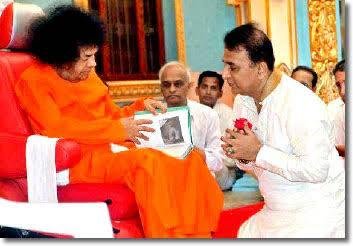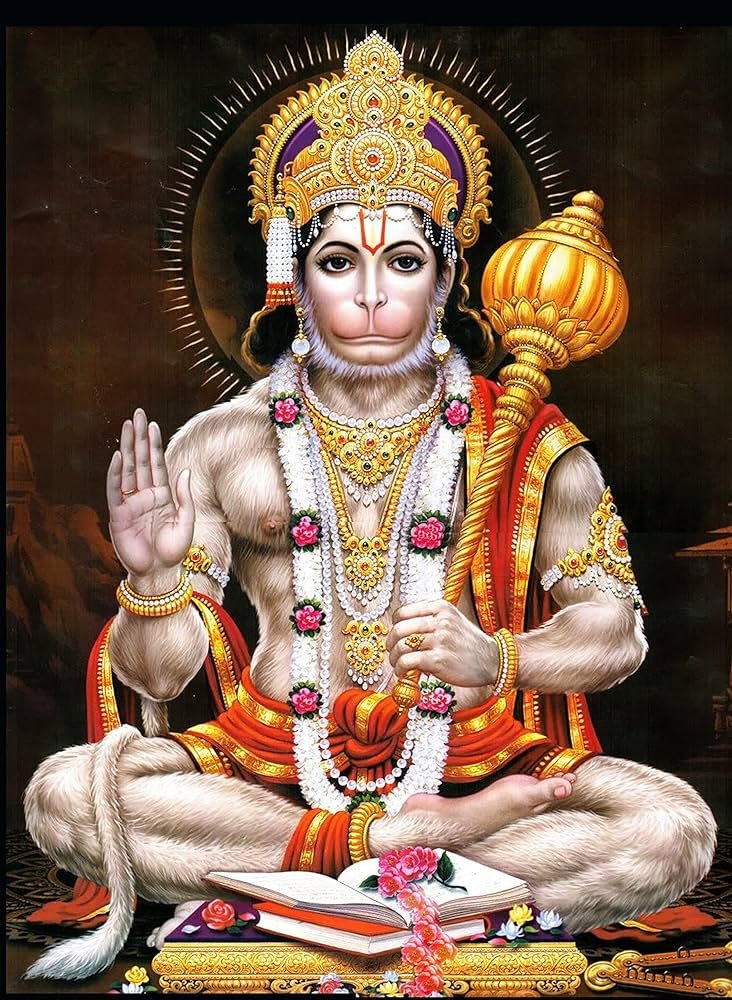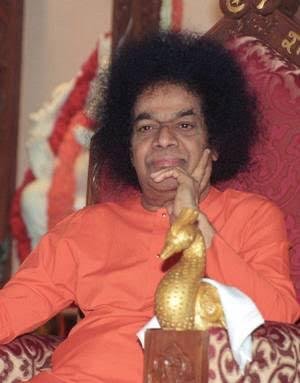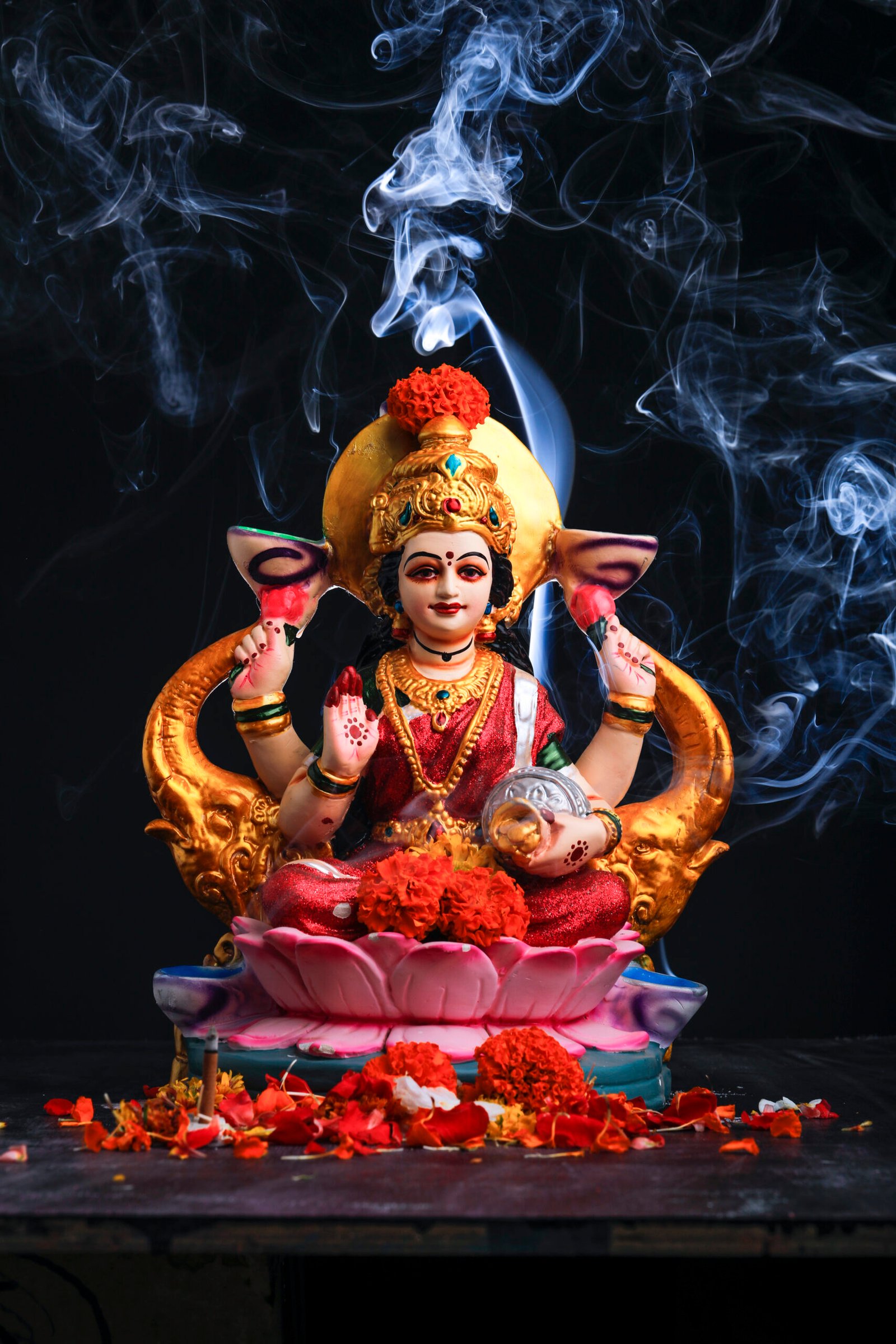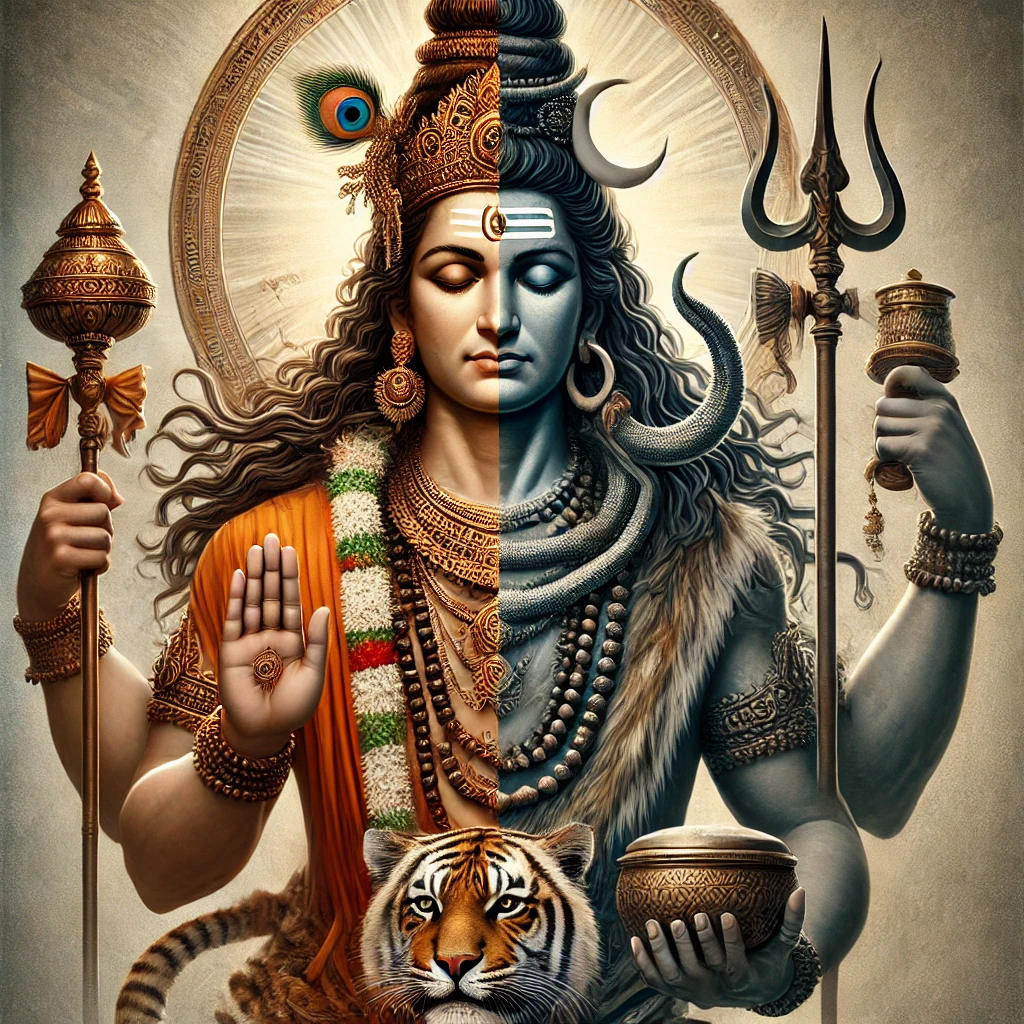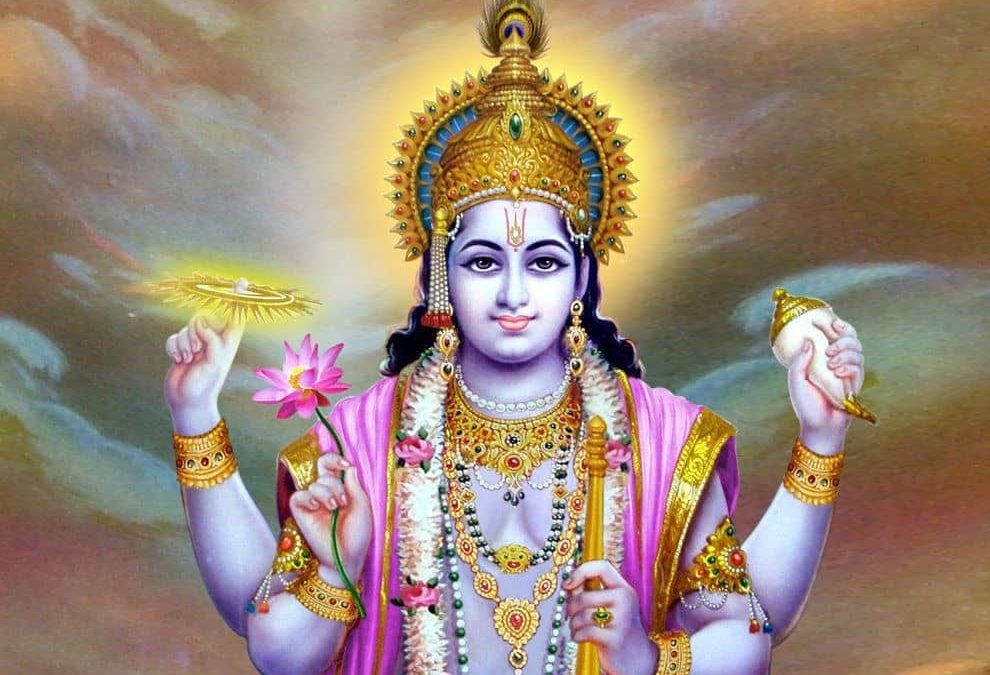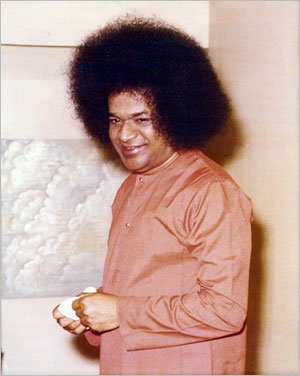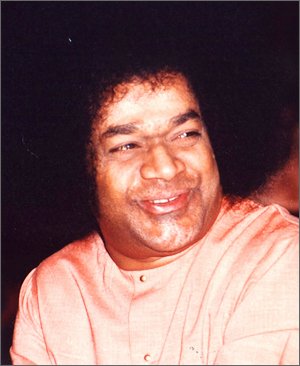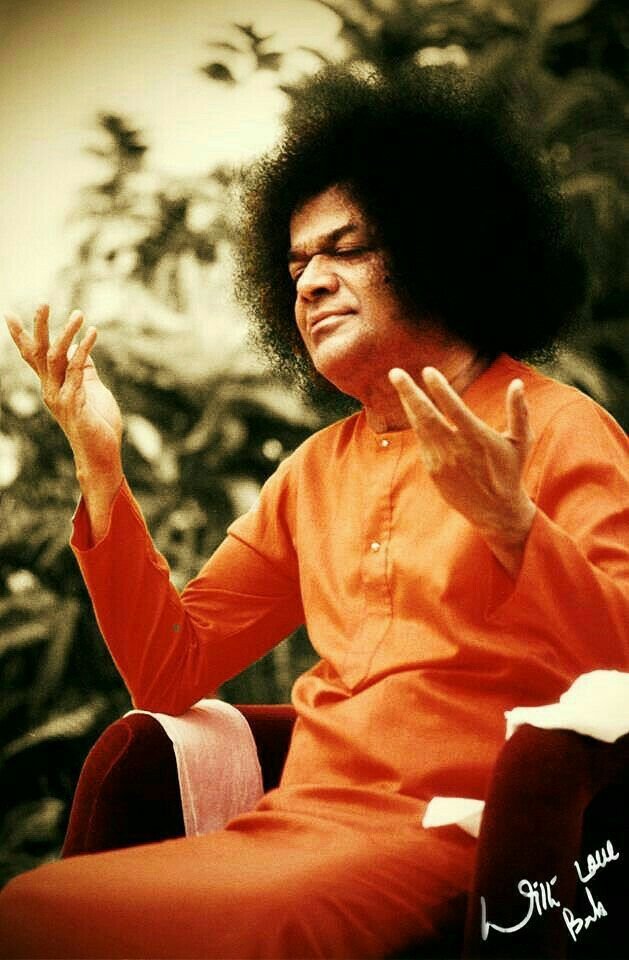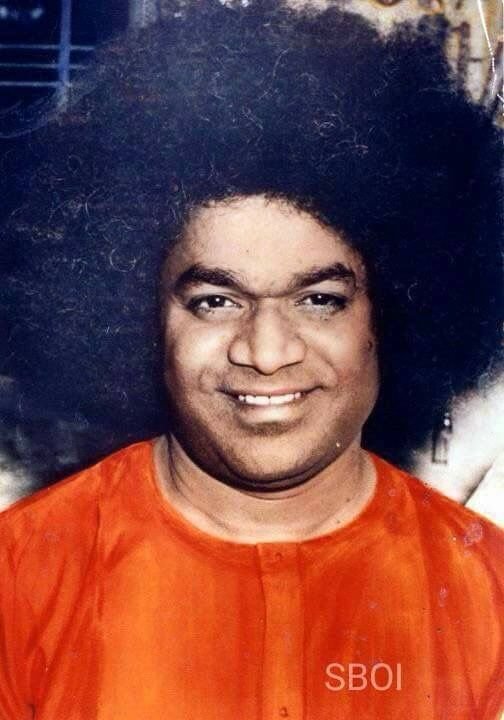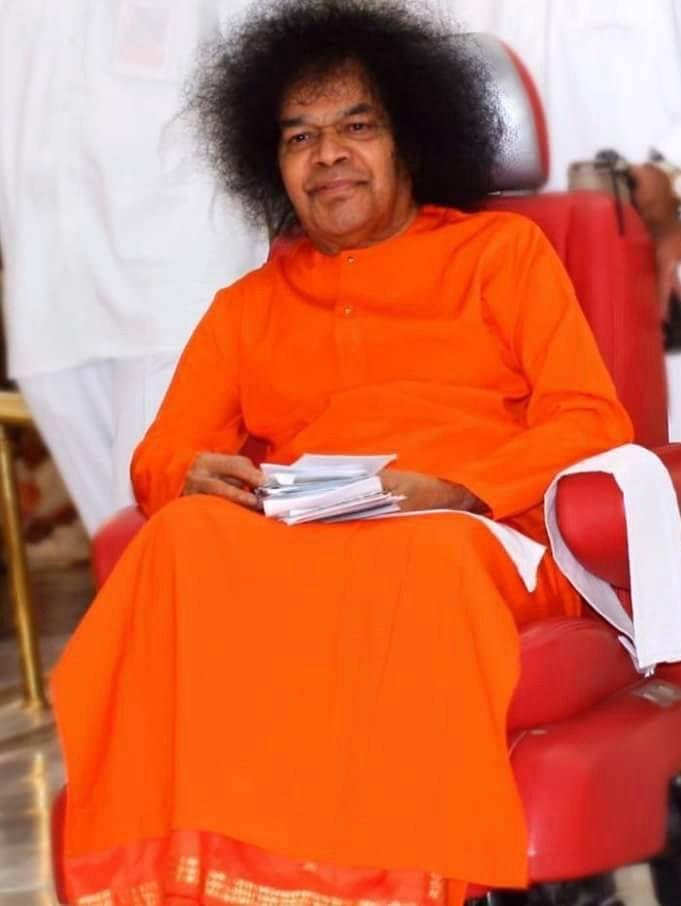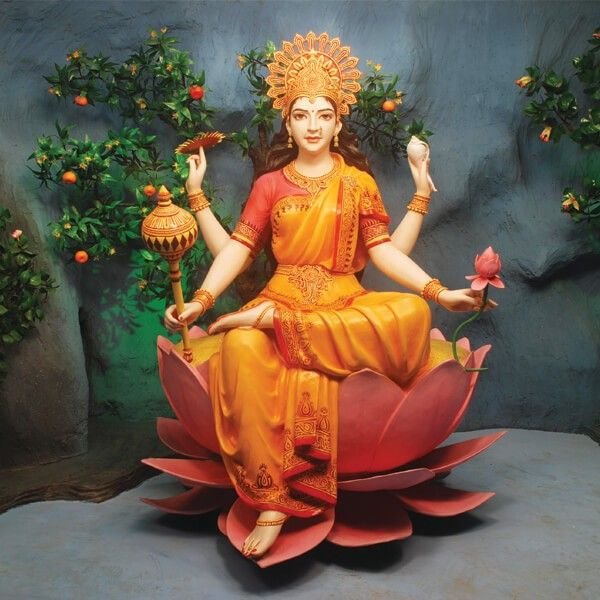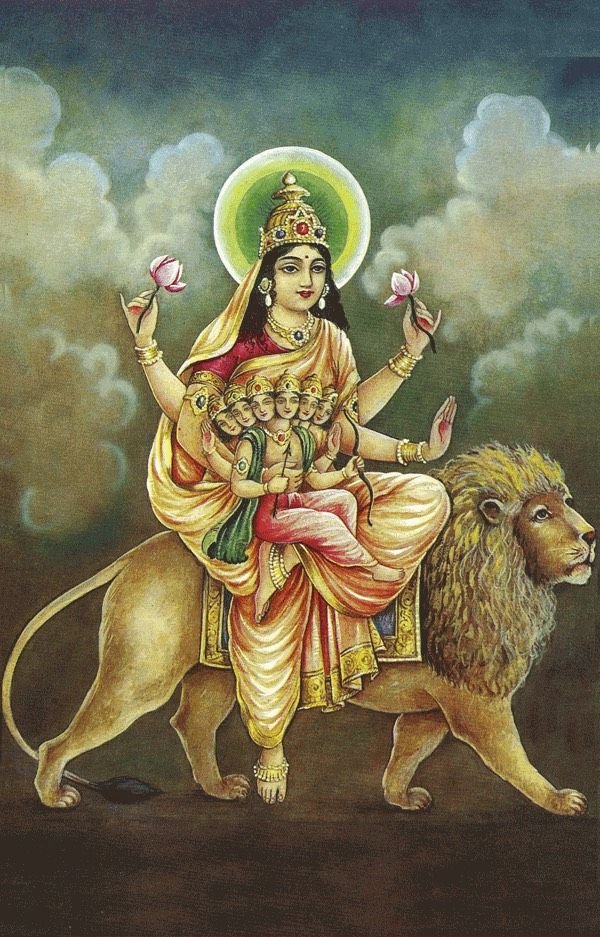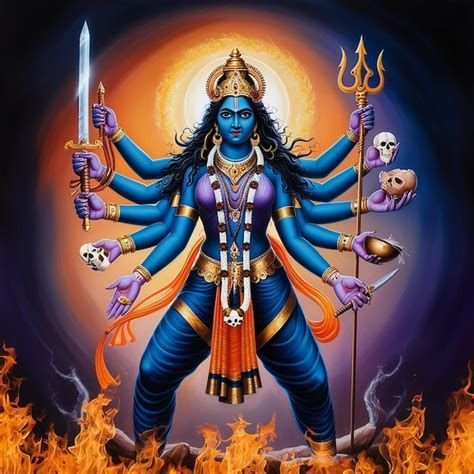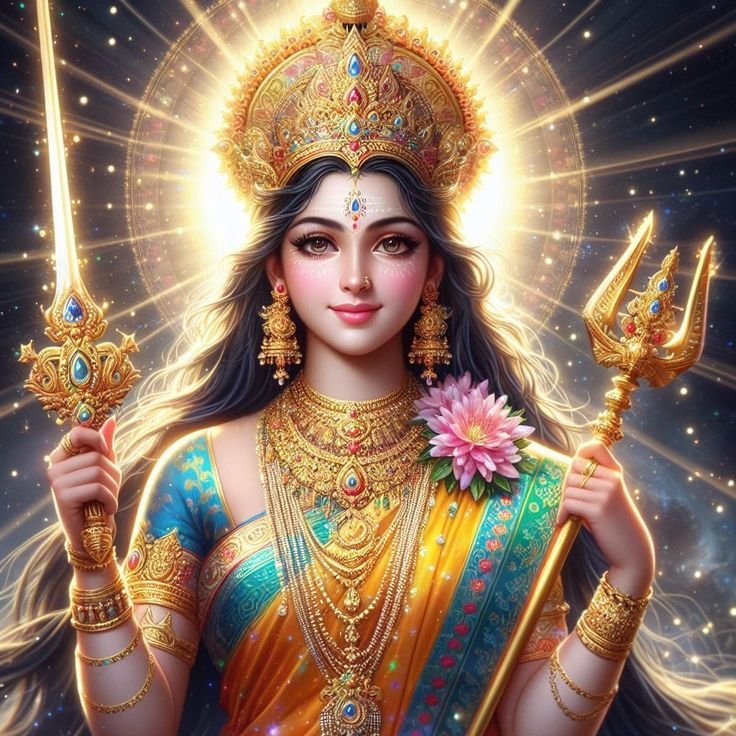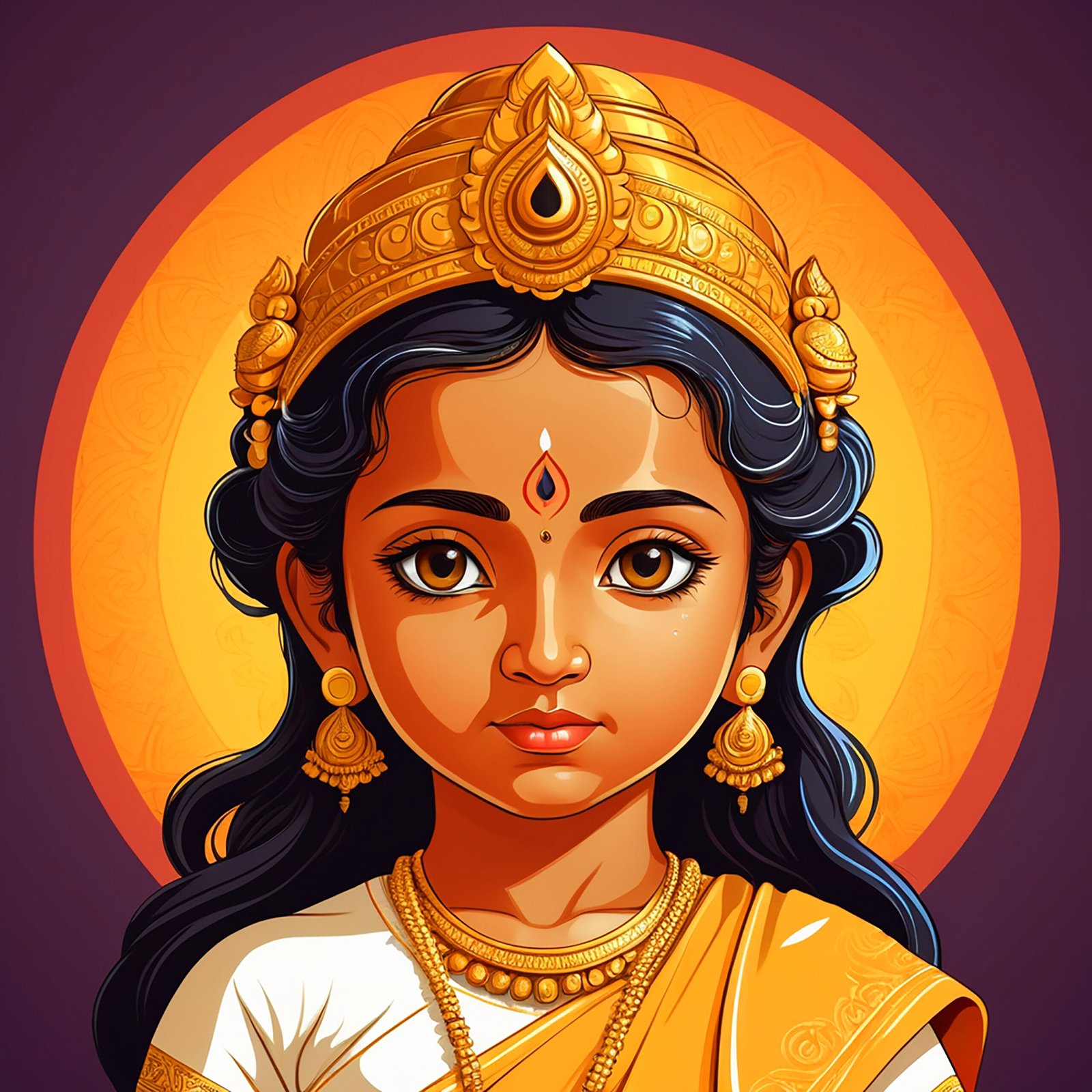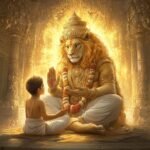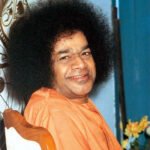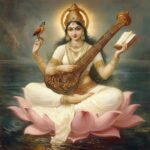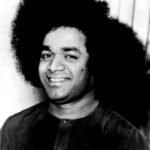CONVERSATIONS WITH SAI Satyopanishad
Satyopanishad – Part Twenty-One
Direct Directions from the Divine
CHAPTER VII: Sadhana, The Inner Door
Prof. Anil Kumar: Swami! The Gayatri mantra is being chanted over many ages here in this holy land. But, we hear that women are prohibited from chanting Gayatri and so are non-brahmins. Should we chant that mantra at specific times and not at anytime of our choice and convenience? What is the importance and significance of the Gayatri mantra? We shall indeed be very fortunate to hear from Your divine lips about this subject.
Bhagavan: Everyone must chant the Gayatri. It transcends the barriers of caste, community, gender, nationality, time and space. It is the one mantra that all should repeatedly chant. There are three main things in the Gayatri mantra. First of all, you should know that Bhur Bhuvah Suvah in the Gayatri are not separate worlds. You think they are three different worlds. It is a mistake to think so. They are within you. Gayamulu means senses. Since Gayatri deals with sense control, it is called so. The body has senses of perception and action. This first aspect of Gayatri is called materialisation or Gayatri.

The body can function only if there is life in it. The pulsatory activity is due to life. Therefore, the life principle vibrates in the body, which makes it functional or operational. This second aspect of Gayatri, which is the life force, is called vibration or Savitri.
The third aspect of Gayatri is the primal sound Omkar, which springs upwards from the navel. Om is a combination of three sounds, ‘A’, ‘U’ and ‘M’. ‘A’ is uttered as it starts from the navel. ‘U’ starts from the throat. ‘M’ comes out of the lips. ‘Soham ‘ is chanted in our breathing process though we are unaware of it. This is called ‘Japa Gayatri’.
As we breathe in, we make the sound ‘so’ and as we breathe out the sound ‘ham’ is made. The ‘soham’ mantra is repeated everyday 21,600 times in our respiratory process. In the mantra, ‘soham’, the second sound in ‘so’, i.e., ‘o’ and the second sound in ‘ham’, ‘m’ together constitute ‘om’. This soham is repeatedly chanted in all the three states; waking, dream and deep sleep. The entire alphabet is formed out of the mother of letters, the primal sound ‘OM’.
To illustrate this, let me give you a small example. In the English alphabet, we have 26 letters from A to Z. All words and sentences are spoken and written using these letters only, aren’t they? You notice that the harmonium has reeds. As you press the bellows the air gets in and as you press the reeds, you get musical notes like sa re ga ma pa dha ni. By means of these seven sounds only, different tunes or ragas are composed. Are they not? You know the violin. It has strings on which you can play any tune. So also, omkar is the primal, primordial sound out of which the rest of the sounds originated.
| God desires from you only one thing, and that is love. This love is not your property either. It is not your ancestral property. This love is not gifted to you by anyone. It is not a commodity to be manufactured by any company. It is not to be acquired from a guru. You are born with love. It is the gift of God. Therefore, it must be given to Him. It is His and so you should return it to Him by loving Him incessantly. |
When you close both your ears tight, you will listen to the Pranava, the Omkar within you. You go very close to an electric pole and listen with your ear touching it; you will hear that primal sound Omkar. This is the sound (internal) in silence (external). This is the divine sound heard in the depth of silence, (nissabdamu loni sabdabrahmam, in Telugu). You can hear the footsteps of God only in silence. This third aspect of Gayatri that pertains to this Omkar, the primordial sound, the speech faculty and the chief source is known as radiation or Saraswati.
Therefore, at the body level it is Gayatri, materialisation. As the life principle, it is Savitri, vibration, and finally as the chief source of sound, it is Saraswati, radiation. These are the three aspects of Gayatri mantra. In other words the atmic power, divine source, is radiation (Saraswati) that enters the body as vibration or life principle (Savitri), so that this body made of material becomes functional which is called materialisation (Gayatri).
Prof. Anil Kumar: Swami! How should we adore You? How should we serve You? Kindly show us the way?
Bhagavan: God does not need your service. He does not require your worship. God desires from you only one thing, and that is love. This love is not your property either. It is not your ancestral property. This love is not gifted to you by anyone. It is not a commodity to be manufactured by any company. It is not to be acquired from a guru. You are born with love. It is the gift of God. Therefore, it must be given to Him. It is His and so you should return it to Him by loving Him incessantly.
Bhagavan: These two levels of consciousness are not separate from each other, as you have stated. When suffering is removed, you derive happiness. Absence of happiness is the cause of misery. Both are interrelated. Absence of light is darkness: Where there is light there is no darkness. Absence of one of the two is the presence of the other. So, if you explore the methods of removing suffering, happiness naturally and automatically dawns. If you investigate the reason for misery, you will know that ignorance is the cause of all misery. What is responsible for ignorance? It is the ego. What is ego? It is attachment.
What is attachment? It is the body, consciousness. So, misery occurs due to attachment to the body.But, one can be happy physically as well as spiritually if one’s senses are under one’s control. In fact, sadness is not natural to man.
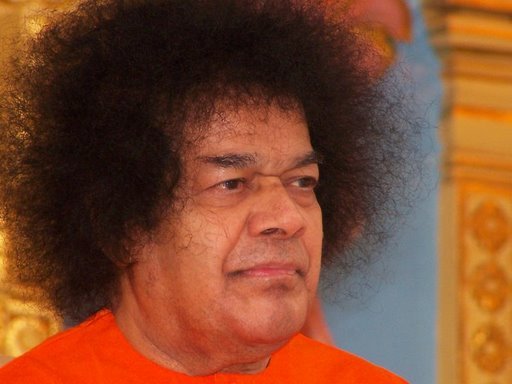
Primarily you should know that the mind is the cause of both pleasure and pain. If your mind is positive, it doesn’t matter if you are either at your home or in a forest. You should fill your mind with love. With constant thought of God, developing more and more of faith in Him, and following the spiritual path, you can undoubtedly remove your suffering. Of course, control of senses is absolutely necessary.

f you understand your true self, atma, you will have ananda, bliss. Bliss is the state, which is above pain and pleasure – bliss is non-dual. This is also called prajna. Since prajna is vast, the scripture says, Prajnanam Brahma. Prajna is divine. Prajna is uniformly present in the body, the mind and the intellect. Prajna is also known as antarvani, the inner voice. By exercising control over external and internal sense, you can listen to your antarvani. If you follow and act according to your Inner Voice, you will be blissful.
Janma or birth is responsible for all misery. Where there is no janma there is no chance for either pleasure or pain. However, janma is due to karma, the consequence of past actions. For karma, the causes are raga, attachment and dvesa, hatred. You take to an activity only if or when you like it, or prefer it to some other activity, otherwise not. Isn’t it? So all actions are born of either of these two states of mind, raga and dvesa. They in turn arise out of ahamkara, ego and ajnana, ignorance. Ajnana is the main cause of misery. Ignorance goes away only if ego is given up. For ego to be dropped one must rise above attachment and hatred; for these two to vanish there should be akarma, inaction, because these actions and their consequences lead to punarjanma, rebirth.
This is the sugar of ananda, bliss. This is the sugar of liberation. This is the sugar of sayujya, merger with God. Therefore, mukti, liberation, is the only solution for the alleviation of suffering.
The happiness that you get from listening to a person whom you like, or hearing about an article that you wished to acquire is described as priyam, pleasure. When you actually get what you really want, that is called modam, joy. The experience of joy after acquiring what you want is called pramodam, supreme joy. If anybody starts talking to you about what is dear to you, you will be happy. So it is called priyam. If you see or meet those who are dear to you, you will be extremely happy. This is called modam. On receiving and possessing what is dearest to you, your experience is described as pramodam.
You do not have to sacrifice the world, You have to give up worldly thoughts and feelings.
You do not have to sacrifice your properties, but you must establish proper-ties with God
So one has to hear about God, priyam in the first stage, practice all that is heard, modam in the second stage and finally experience the bliss thereafter, pramodam in the third stage. This is anandaprapti, the way to be blissful.
Prof. Anil Kumar: Swami! What is it that we should renounce? What is that we should sacrifice?
Bhagavan: You do not need to renounce the world. Many people commit a mistake here. You do not have to sacrifice the world. You have to give up worldly thoughts and feelings. You must have heard of Ramananda Tirtha, a renunciant. He was married, and also had a son. He renounced his family. One day when his wife visited him, he refused to see her and turned his head away. Watching this, the wife said to him, “Swami! Since you have the feeling that I am your wife, you did not look at me and turned away your face. I do not have that feeling, not in the least”. It was then she gave him the ochre robes. So, you need not renounce the world. You need to shed worldly thoughts. You do not have to sacrifice your properties, but you must establish proper-ties with God.
For example: you observe the sea, its waves and its foam. They are interdependent; one cannot exist without the other. Waves come out of the sea. Waves are not independent. We find foam collecting on the surface of the waves. When there are no waves, there can be no chance for the foam to collect on the surface.
However, apparently, we have three forms in different names – sea, wave, and foam. But essentially, all the three show the same water by different names. Don’t they?Bhagavan: You should first of all know what happiness truly is! I want you to be blissful and not simply happy. Happiness, as you understand it, is not truly happiness. In fact, true happiness lies in union with God. This you can develop by establishing contact with the Divinity within you. In other words, being aware of the Divinity within you, you can also make yourself happy in the world. Happiness lies in liking what you should do and not doing what you like.
Bhagavan: For all this, understand that the mind is the main cause. If you turn your mind Godward, you will be happy. If you turn it towards the world, you cannot be happy for long. See, here you turn the fan towards you. Then you get the breeze. If you turn it the opposite way, you won’t get any breeze. Your getting or not getting the breeze depends upon the direction in which you turn the fan.
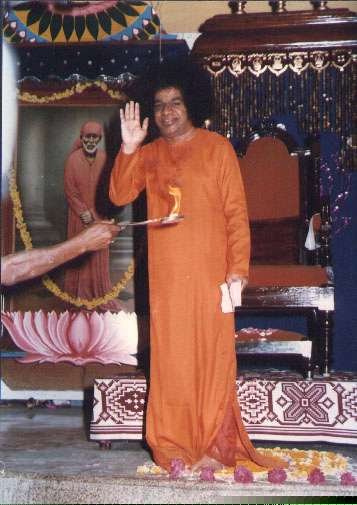
| Being aware of the Divinity within you, you can also make yourself happy in the world. |
The sea represents paramarthika satya, Spiritual Truth; the waves stand for pratibhasika satya, superimposed or mistaken identity, while the foam is the vyavaharika satya, worldly or physical truth.
Prof. Anil Kumar: Swami! Is sadhana a must in everyday life? Is it compulsory?
Bhagavan: Yes, it is very necessary that you should do it everyday. Don’t you wash and scrub utensils everyday to keep them clean? Until you become steady, develop unwavering faith and total surrender, it is most necessary to do sadhana everyday.
It appears surprising that small tender plants need water everyday while huge trees do not. Roots of small plants go a few inches deep and cannot draw water, from the depths. But trees have roots that spread and go deep to draw, ground water. Similarly, until the roots of your faith go deep into the ground of your heart, you have to do sadhana everyday. Your faith today is like the root of a small plant that has not yet gone deep into your heart and so you should do sadhana everyday.
Satyopanishad – Part Twenty Two
Direct Directions from the Divine
CHAPTER VII:
Sadhana, The Inner Door
Prof. Anil Kumar: Swami! Now we understand from Your divine discourse and by Your grace how important is devotion. But, faith is the base of devotion. How is one to cultivate faith, Swami?
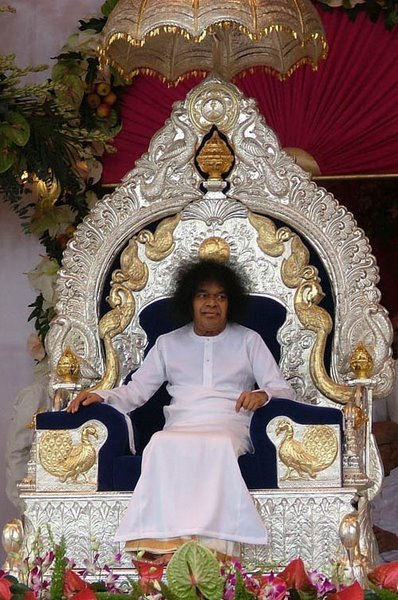
Bhagavan: What a foolish question you have asked! What do you mean by ‘cultivating faith’? Can you cultivate it? Is that a commodity to be purchased from a shop? It can neither be given nor received. Faith is your natural quality. In fact, faith (visvasa) is your breath (svasa). Without it, you cannot breathe.
Just think for a moment how you carry on your daily routine with or without faith. You will soon notice that your every action, both mundane and spiritual, is based only on faith. You give your clothes, costly shirts and safari suits, to a washerman in full faith that he would bring them back after washing and ironing.
If you suspect that he would run away with your clothes, will you give them to him? Most valuable gold is given to goldsmiths to make jewellery out of it in good faith that they would do so. Even if a trace of doubt arises in your mind, will you ever hand over valuable gold?
You go to a barber for a haircut. Do you for a moment entertain the feeling that he would put his knife not on your head but in your neck? You bend your head in good faith in front of the barber to have your hair cut. So also in good faith, a patient lies down on the operation table and allows himself to be operated upon by the surgeon.
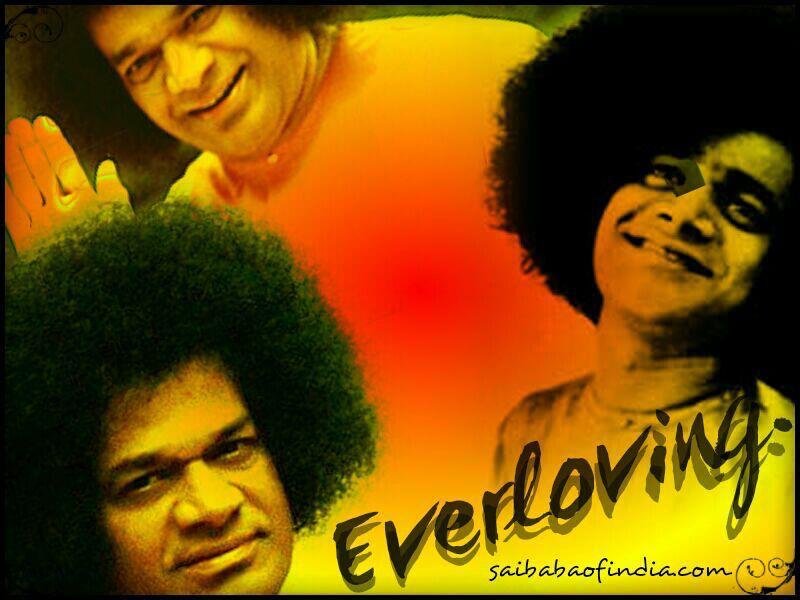
Devotion and faith are like the two eyes of a living being or the two wheels of a bicycle or the two wings of a bird. Without faith, as we say, even an ant can’t move an inch. A bird cannot fly high without faith. A bird perches on a branch. The branch may be drooping or swinging, yet the bird is not bothered. Why? It is because the bird has full faith in its wings on which it relies but not on the branch. So, everything depends on your faith.
| Faith is a natural gift of God to mankind. To be faithless is unnatural and artificial. But the pity of it is that you have full faith in everyone but not in God. Isn’t that very unfortunate? |
How do you know your father? It is your mother, who has the authority to show you your father and you have full faith in your mother. If not, there is no way to know your father. You know the dates and the days from a calendar and you go by what the calendar indicates. Otherwise, how do you know that today, say, is Monday, the 14th May? The day has not appeared in front of you with a signboard on the forehead indicating the day of the week and the date. You have full faith in all that you listen to from the All India Radio news bulletin and the various news columns that you go through in a newspaper.
So much so, you believe what you hear on the radio, watch on the T.V., read in the newspapers, but you don’t believe our rishi vakya, or the sayings and teachings of our sages and saints of yore, embodied in the Vedas and other holy scriptures. The Vedas are called isvariya, apauru seya, that is, compositions that have come from God. You don’t have faith in them. How strange and unfortunate it is! Think over it for sometime.
Prof. Anil Kumar: Swami! Why are some people not devoted to God? Devotion, it seems, has no place in their lives. Would you kindly tell us the reason?
Prof. Anil Kumar: Swami! Why are some people not devoted to God? Devotion, it seems, has no place in their lives. Would you kindly tell us the reason?
Bhagavan: Very simple. It is only sensual pleasure that makes people disinclined towards God. Meaningless worry about the future, excessive desires, building castles in the air are a way of life with them. Ambition to reach heights they don’t deserve and too much attachment to the family and the world, all these are factors that make a man not devoted to God. There can be no other reason beyond these.
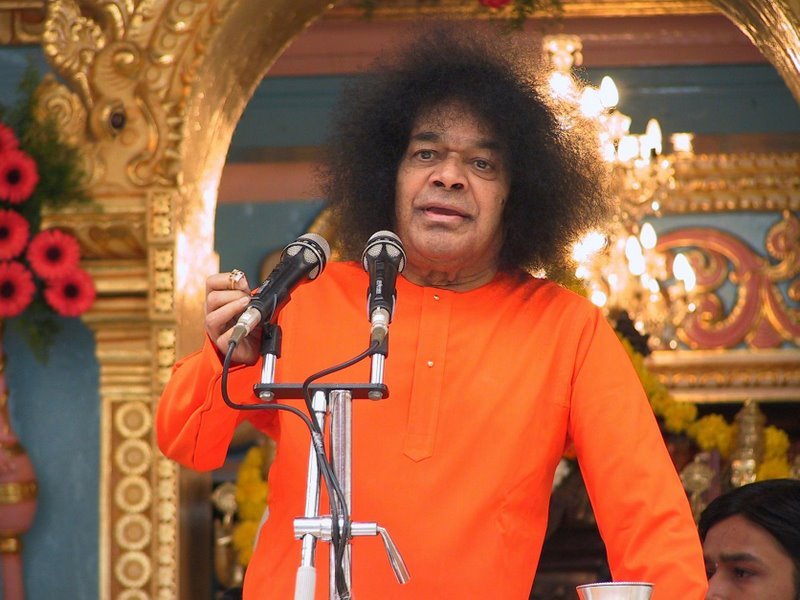
A District Collector has all the comforts and conveniences such as a big bungalow with a spacious compound, furniture, peons, etc. He has a very big office and personnel to provide assistance, but when he retires, he has to leave them all, though he lived till then with them as their sole proprietor and owner. Does he cry on the day of his retirement?
Can they claim and own them at any point of time? Similarly, you see a cashier in the bank. He has with him lakhs and lakhs of rupees, which he disburses to different account holders according to the cheques presented. Does he feel sad at any time for parting with the money? Not even a single paisa belongs to him.
The same is your relationship with the world you live in. Know the essence, saram, and lead this worldly life, samsaram. In fact, no one has anything to do with anything or anybody. You are alone at the time of both, your birth and death. The rest that comes in between are like passing clouds.
“Would you settle down on a bridge you cross from one end to another!
Would you like making a house, of a boat plying from bank to bank!
Would you build a mansion right in the middle of a highway!”
For example: A villager goes to a nearby town on some business. As he could not complete his work, he has to stay in a lodge to rest. The proprietor of the hotel or lodge he chooses to stay in will naturally put some questions to him before letting out a room to him. He will ask the villager to register his name and address. He has to answer questions such as “Where do you come from? How long would you stay?”


